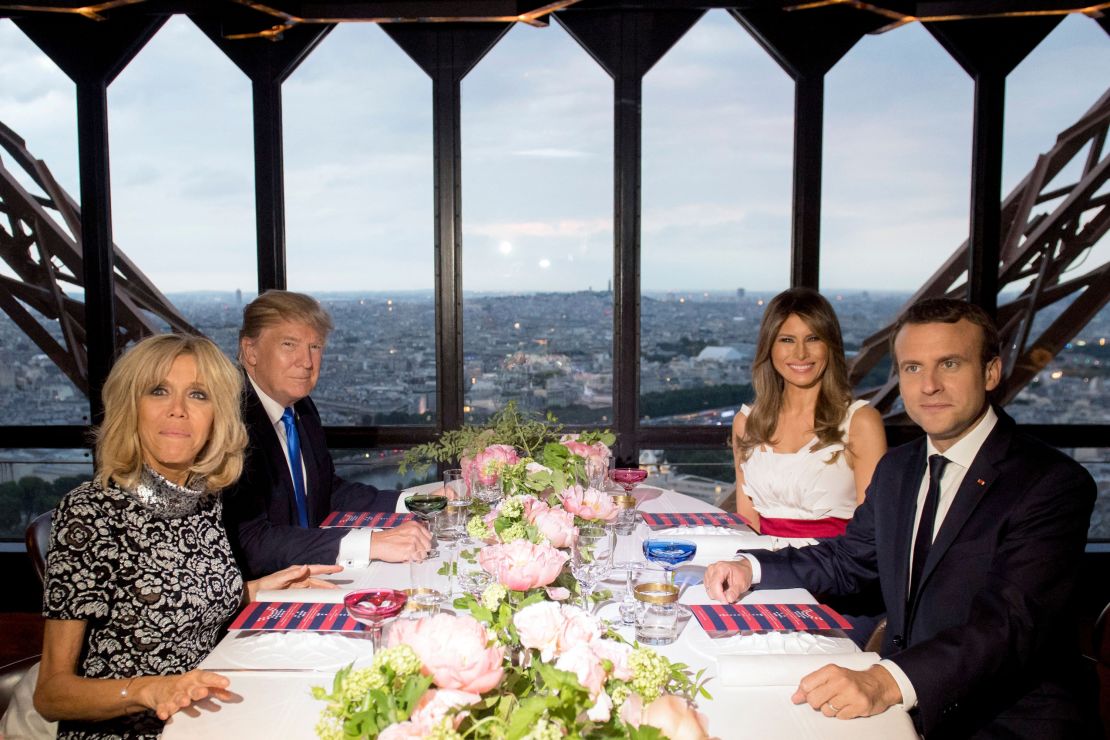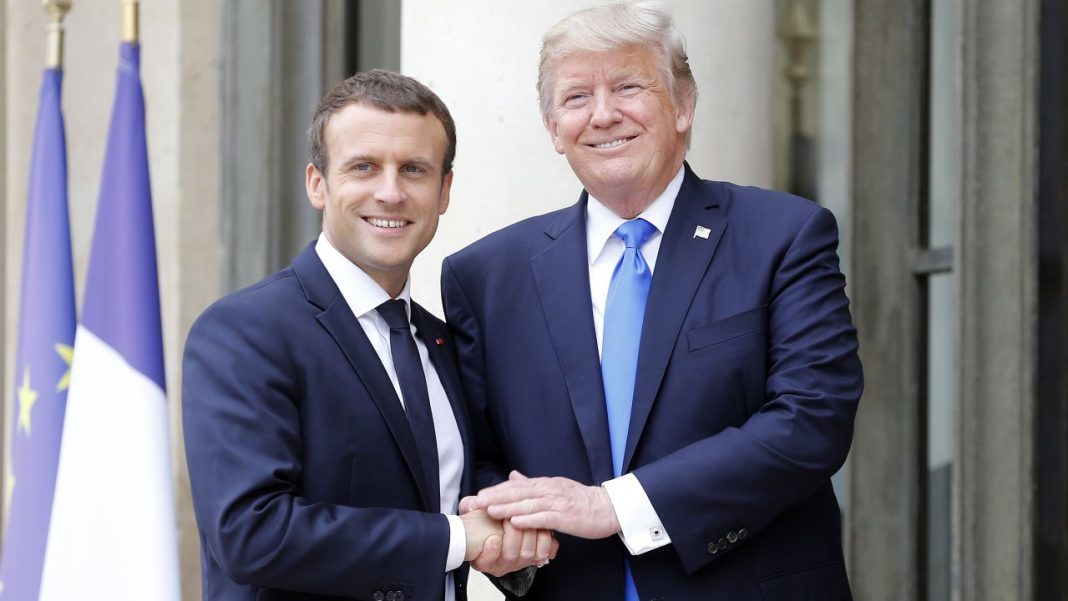In a display of political theater and shifting alliances, Donald Trump, poised to reclaim the presidency, has accepted an invitation to Paris from French President Emmanuel Macron. The visit underscores the profound changes in global dynamics and the magnetic pull Trump still exerts on the international stage. Set against the backdrop of the unveiling of the restored Notre Dame Cathedral, this trip signals both Trump’s imminent return to power and the recalibration of relationships among world leaders.

Macron’s warm reception of Trump evokes memories of their initial camaraderie during Trump’s first term. The French president once lavished attention on Trump, hosting him during Bastille Day celebrations, an event that left an indelible mark on the American leader. Trump returned home inspired to emulate such grandiose displays, resulting in his controversial aspirations for a July Fourth military parade.
Fast forward to today, and Macron’s invitation for Trump to attend the grand reopening of Notre Dame Cathedral positions the president-elect as a centerpiece of global attention. This gesture elevates Trump from domestic turbulence to a transatlantic stage, amplifying his influence before his second term begins. Macron’s move highlights a pragmatic approach: courting Trump, despite their complex history, as a means to secure France’s strategic positioning in a world increasingly shaped by unpredictable American policies.

While Trump prepares for his Parisian debut, President Joe Biden finds himself mired in controversy and dwindling political capital. His decision to pardon his son, Hunter Biden, has drawn bipartisan criticism, overshadowing his official trip to Angola. Biden’s visit to Africa, aimed at reinforcing U.S. commitments in the region amidst China’s growing influence, underscores his administration’s focus on substantive policy. Yet, the muted reception contrasts sharply with the fanfare surrounding Trump’s Paris invitation.
Biden’s African tour also highlights one of his administration’s significant achievements: bolstering the decades-long HIV/AIDS program that has saved millions of lives. This initiative, however, faces an uncertain future under a Trump administration that may deprioritize such efforts in favor of domestic-focused or populist foreign policies.
Trump’s impending presidency is causing ripples across international corridors of power. His unpredictable style, coupled with a penchant for strongman diplomacy, forces world leaders to navigate a delicate balancing act. European allies, particularly Macron, are acutely aware of Trump’s potential to disrupt NATO cohesion, withdraw support for Ukraine, and escalate tensions with adversaries like China and Iran.
Macron’s invitation can be seen as a strategic gamble. By aligning early with Trump, the French president aims to position himself and his country as indispensable allies. However, this move risks alienating domestic and European critics wary of Trump’s nationalist and transactional diplomacy.
Macron’s efforts to woo Trump also reflect broader European dynamics. Since Angela Merkel’s retirement, Macron has sought to fill the void as Europe’s de facto leader. However, his presidency faces internal challenges, including rising populism from Marine Le Pen’s National Rally Party. Macron’s overtures to Trump might also serve to preempt Le Pen’s narrative, which aligns more closely with Trump’s populist and nationalist rhetoric.
Across the Channel, new British Prime Minister Keir Starmer faces his own challenges in managing relations with a Trump-led United States. With Trump deeply unpopular among the Labour Party base, Starmer must tread carefully to maintain U.K.-U.S. ties without alienating his domestic support.
Germany, once a bastion of European stability under Merkel, now faces political uncertainty. Chancellor Olaf Scholz’s coalition government is on shaky ground, leaving France as the primary European interlocutor for Trump’s America.
Trump’s visit to Paris not only reignites his relationship with Macron but also revisits the highs and lows of their first-term interactions. From mutual admiration to public spats over defense spending and European sovereignty, their dynamic has mirrored the broader challenges of transatlantic relations in the Trump era.
Macron’s decision to host Trump at Notre Dame symbolizes resilience and renewal—not just for the cathedral but also for a Franco-American alliance tested by ideological divides and geopolitical shifts. For Trump, it’s a chance to project statesmanship and reassert U.S. dominance on a global stage, a narrative he cherishes.
Trump’s reemergence in international diplomacy marks a turning point for the global order. His unapologetic approach to foreign policy—favoring bilateral deals over multilateral agreements and strongman alliances over traditional partnerships—poses a challenge to the post-World War II framework. Macron’s embrace of Trump may signal Europe’s adaptation to this reality, as leaders prioritize pragmatic alliances over ideological purity.
This visit will likely set the tone for Trump’s second term, offering insights into his foreign policy priorities and the strategies world leaders will employ to navigate his leadership. As Macron and Trump share the spotlight in Paris, the world watches closely, aware that this moment represents not just a meeting of leaders but a recalibration of power in an era defined by uncertainty.



